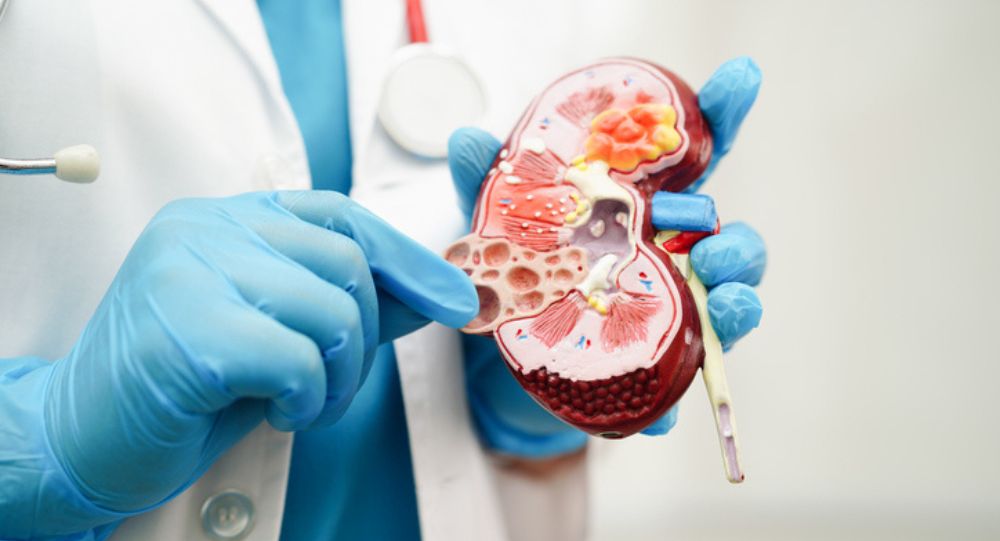In today’s economic climate, where food prices are steadily climbing, it can be increasingly challenging to maintain a healthy diet while sticking to a budget. At The Kidney & Hypertension Center, we understand these challenges and are committed to providing compassionate and practical advice to help you manage your kidney health without breaking the bank.
First, Understand Your Nutritional Needs
A balanced diet plays a critical role in managing kidney health. It’s important to tailor your nutrient intake based on your specific health needs, particularly if you have kidney concerns. Here’s what to consider with the guidance of your healthcare provider:
- Sodium: Too much sodium is common in American diets, linked to higher blood pressure and kidney strain. It’s crucial to discuss with your healthcare provider the appropriate daily sodium intake for you.
- Potassium: This vital mineral must be balanced carefully. Both excess and deficiency can pose serious health risks, particularly for those with kidney disease. Your doctor might adjust your intake based on your kidney function and may also monitor your levels more frequently if needed. Click here to explore some low-potassium foods.
- Protein: The right type and amount of protein are vital for your health. Individuals with kidney disease or those undergoing dialysis may have different protein needs. Plant-based proteins are often recommended as they are gentler on the kidneys compared to animal proteins.
- Phosphorus: While essential for strong bones, excessive phosphorus can weaken them and damage blood vessels, particularly in those with kidney disease. Monitoring and maintaining balanced phosphorus levels is crucial, and your healthcare provider can offer specific recommendations. Click here to explore some low-phosphorous foods.
- Carbohydrates: For those with or at risk of diabetes, managing carbohydrate intake is essential to maintaining stable blood sugar levels. Consulting a dietitian or diabetes educator can help devise a suitable eating plan.
Tips for Meal Planning and Shopping
Plan Your Meals Ahead of Time
Planning is key to budget-friendly and healthy eating. Start by planning your meals for the week before you go shopping. This helps prevent impulse buys and ensures you purchase only what you need.
Make a Shopping List and Stick to It
Armed with your meal plan, make a shopping list. This organized approach helps you avoid unnecessary purchases and focus on the ingredients you need for your planned meals.
Buy in Bulk
Purchasing non-perishable items in bulk can save money in the long run. Look for bulk bins at your local grocery store for items like rice, beans, and lentils. Just be sure these items align with the dietary advice from your healthcare provider.
Choose Seasonal and Local Produce
Seasonal fruits and vegetables are often more affordable and at their peak flavor. Local produce not only supports your community but can also be less expensive due to reduced transportation costs.
Utilize Coupons and Sales
Take advantage of coupons, sales, and loyalty programs at grocery stores to help reduce costs on the items you buy regularly.
Swapping Animal Proteins for Plant-based Alternatives
Why Choose Plant-Based Proteins? Plant-based diets are not only kidney-friendly but also budget-friendly. They are typically lower in phosphorus and may have a less significant impact on kidney disease progression compared to some animal proteins.
Incorporate Beans, Lentils, and Tofu: These are excellent, low-cost protein sources. They are versatile and can be used in a variety of dishes, from stir-fries to salads.
Explore Plant-based Recipes: To help you get started, visit our blog on The Power of a Whole Food, Plant-Based Diet: Recipes to Get Started. This resource is packed with kidney-friendly, plant-based recipes that are not only delicious but also easy on the wallet.
Remember, You’re Not Alone
At The Kidney & Hypertension Center, we are here to support you every step of the way. Eating well on a budget is challenging, but with the right resources and support, it is entirely possible. If you have concerns about your diet or kidney health, don’t hesitate to reach out. Schedule an appointment today, and let us help you manage your health with personalized care and advice.
Your health matters. Let’s work together to ensure that managing your kidney health is achievable, regardless of budget constraints.




